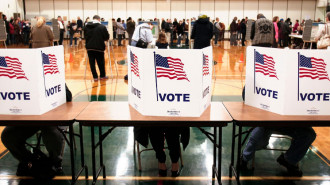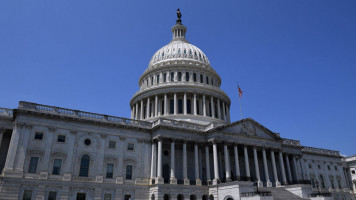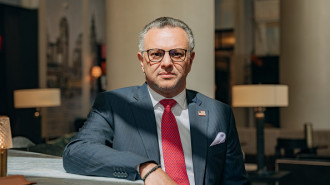Iraqi voters 'misled by empty promises', activists say
Iraq's electoral voters are being manipulated by the "unrealistic promises" made by political candidates in the 2021 elections, which exceed the country's economic capabilities, Iraqi political analysts and activists have told The New Arab's Arabic-language site Al-Araby Al-Jadeed.
Iraqis headed on Sunday to polling stations across the country to take part in early elections, in which the majority of candidates have made promises on economic and social reforms, including fighting unemployment and poverty, enhancing the exchange rate of the dinar and building hospitals and nursing homes.
However, political analysts and activists have highlighted that the government, which has declared that the unemployment rate has exceeded 20 percent, were unable to achieve their promises due to a struggling economy, and therefore it is unlikely that the election candidates will do so either.
"The government should have prevented the manipulation of the people... rather than let the deception continue", said Iraqi activist Ahmed Haqqi, according to Al-Araby Al-Jadeed.
"Even if their intentions are true, there is no financial ability for the Iraqi state to implement these promises, even if the price of a barrel of oil rises to 150 dollars," Haqqi said. "The country is restricted by its debts, corruption and heavy crises that are not enough for even four electoral cycles to resolve."
Promises for increasing job opportunities are related to the budget law, which the government have confirmed there are no existing vacancies for, explained member of the Iraqi parliament's Economy and Investment Committee, Intisar Al-Jubouri.
"They are clear violations, and voters can file complaints in cases where they are offered [false] financial temptations in exchange for their votes", Al-Jubouri told Al-Araby Al-Jadeed.
The task of a parliament member is limited to legislation and economic promises may be more appropriately provided through local governments, MP Ahmed Al-Mashadani told Al-Araby Al-Jadeed, stating that current promises made could fall within the framework of "deceiving the voters".
This comes as many Iraqi's say they will boycott the elections, having lost faith in the democratic system brought in by the US invasion of Iraq in 2003.
Polling stations opened across Iraq at 7 a.m. on Sunday and will close at 6 p.m., as at least 167 parties and more than 3,200 candidates compete for Iraq's 329 seats in parliament, according to the country's election commission.
The elections will be the sixth since the fall of Saddam Hussein after the US-led invasion, where over 250,000 security personnel have been tasked with protecting the vote, including army troops and police who have been deployed outside of polling stations.

![Palestinians mourned the victims of an Israeli strike on Deir al-Balah [Getty]](/sites/default/files/styles/image_684x385/public/2024-11/GettyImages-2182362043.jpg?h=199d8c1f&itok=xSHZFbmc)


![The law could be enforced against teachers without prior notice [Getty]](/sites/default/files/styles/image_684x385/public/2178740715.jpeg?h=a5f2f23a&itok=hnqrCS4x)
 Follow the Middle East's top stories in English at The New Arab on Google News
Follow the Middle East's top stories in English at The New Arab on Google News


